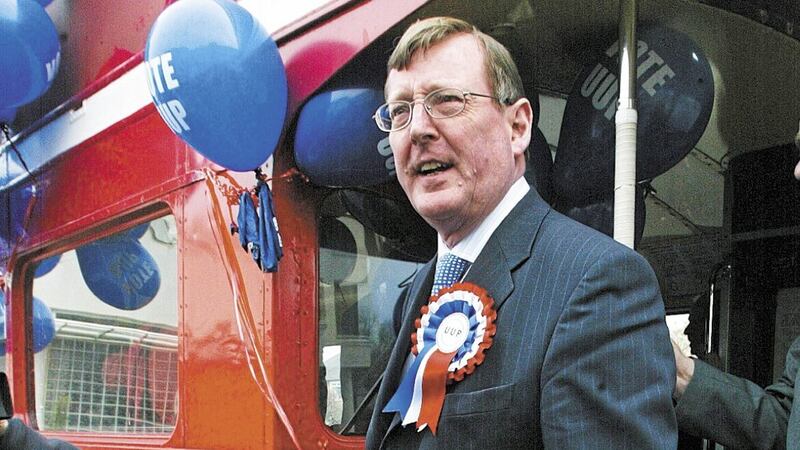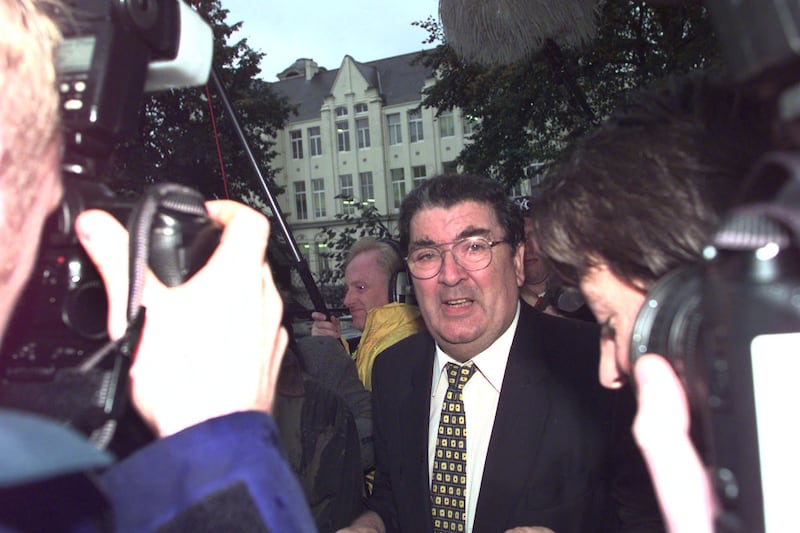ENOCH Powell claimed all political careers end in failure, but it is the entire story not the final chapter that is the true measure.
Lord Trimble’s was the political generation that found itself in the maelstrom of the near breakdown of Northern Ireland through terrorism and sectarian violence exacerbated by a UK government thinking it had quick and easy answers.
His political advancement was an act of fate through the early passing of Harold McCusker.
Trimble inherited just not his Upper Bann seat but ultimately the leadership of the Ulster Unionist Party, as McCusker had been expected to.
His surprise win built around his intellectual capability, a corps of UUP members with a Vanguard background and a properly run campaign.
He gained this mantle at a critical juncture.
The Provisional IRA knew it faced a de facto military defeat within 5-10 years so was exploring its options.
The two governments had produced the Framework Documents and Downing Street Declarations. Unionists knew they could not continue with the ossification of the Molyneaux years. A leader of intelligence and firmness was needed, and he appeared to fit the bill.
He was faced with Unionism’s strategic failure to end the Anglo-Irish diktat. Within the UUP, there was much debate, driven primarily by the Young Unionists, of the need for a ‘New Unionism’.
However, within that debate there were two clear strains. Those who wanted to modernise and those who wanted it as a smokescreen for capitulation. The following decade was the battle between those two strains with Trimble beginning with the modernisers but slowly abandoned by most of them until he was left with the weak.
Seamus Mallon’s quip about the Belfast Agreement being Sunningdale for slow learners is a good line but poor history.
However, it shaped his approach to talks. Trimble negotiated hardest on cross-border institutions, and this was his main success, not the principle of consent.
Without him there was no deal and he maximised that to best effect on cross-border issues but fixes for past problems did not prevent new ones.
Unionists were deeply sceptical of the deal and to gain a majority of unionists in the referendum it was missold.
It was a partial/instrumental agreement but sold as a final/full deal. Sunningdale had not dealt with the removal of terrorist groups from society let alone ones in government while they murdered and stole.
The new executive was partisan fiefdoms not shared governance. Finally, the UUP had made many sacrifices to secure devolution but did not have many ideas of what to do with it.
The DUP took full advantage and under the influence of Robinson and Dodds began to change, attracting many UUP modernisers and a mandate from unionist voters to renegotiate.
An ever-isolated Trimble was left as easy prey for long-standing Northern Ireland Office policy, the perpetual willingness to push only unionist leaders to the point of political destruction and beyond, as they did with the collapsed decommissioning deal in 2003.
There was always a degree of awkwardness to the man that did not assist in the ‘charming’ of friends and foes.
While essential to the ‘peace process’ he was treated by others as more in it than of it.
He seemed to accept this, content with his own script as exemplified by his Nobel acceptance speech.
However, he was written out more and more over time.
His support for Leave in 2016 and his opposition to the protocol further fuel for their selective memories.
All those in the process ‘in-crowd’ who now rush to laud him may serve all our interests best by heeding his final calls on the protocol.
:: Lee Reynolds is a former DUP special adviser and was an Ulster Unionist Party member in the 1990s.








